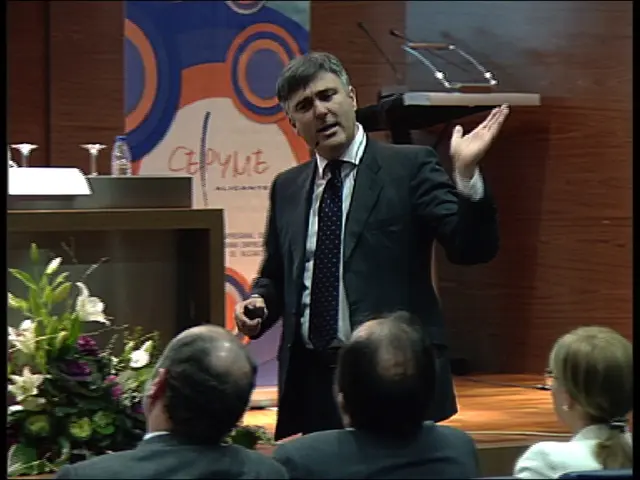Université de CSU proposals increased energy costs to be alleviated
The Christian Social Union (CSU), a key member of the conservative coalition in Germany, is advocating for initiatives aimed at reducing electricity costs and ensuring a secure, affordable energy supply. These proposals come as soaring energy prices pose a significant challenge for the country.
One of the key proposals is the capping and subsidizing of electricity grid fees. From 2026, the government plans to lower grid fees for all electricity customers by using subsidies worth around €6.5 billion. This move is expected to reduce the costs added to electricity bills for grid operation and expansion, which have been rising due to the growth of renewable energy and electrification of heating, transport, and industry.
The CSU also emphasizes the need to expand renewable energy capacity and hydrogen infrastructure. The coalition has committed to carrying out a comprehensive review of the energy transition, including the expansion of renewable energy, the buildout of electricity and hydrogen capacities, and grid infrastructure. The aim is to achieve long-term targets such as increasing the renewables share while maintaining supply security and affordability.
In addition, the CSU is advocating for a balanced approach that combines climate action with cost-efficiency, innovation, and social balance. They acknowledge the need to accelerate the transition away from fossil fuels, including Russian gas, but stress doing so in a way that supports Germany’s industrial competitiveness and protects consumers.
The CSU is also presenting a list of demands to address rising electricity and gas prices. This includes the introduction of a protective shield against price increases for low-income individuals, with an inflation adjustment in taxes and social benefits. The group is also calling for a dynamic commuter allowance that automatically increases with fuel prices, and a relief for electricity customers that includes the abolition of the EEG surcharge.
The CSU parliamentary group leader, Alexander Dobrindt, has called for an effective energy price brake. The group is also advocating for less dependence in energy supply, particularly in reducing Germany's dependence on Russia. However, no explicit proposals on gas price reduction or alternatives to Russian gas were directly cited.
The high energy prices are having a significant impact on various sectors. For commuters, high fuel prices are a burden. High heating costs are affecting those on middle incomes, while high electricity prices are driving further job losses in industry. The CSU accuses the traffic light coalition of ignoring the energy price spiral and refusing swift relief.
These initiatives are part of broader government efforts involving the CDU/CSU and SPD alliance to address the energy crisis exacerbated by rising prices and dependency on Russian gas following geopolitical tensions. The overall strategy recognizes the complex challenge of grid expansion, hydrogen development, and transitioning industries away from fossil fuels with an emphasis on social and economic impacts.
Read also:
- Unchecked Management of HP Dams Leads to Environmental Disaster: RTI Reveals
- Impact of Trump's Enforced Russia Sanctions Could Compel Putin's Decision-Making
- Nordstrom taps prominent New York residents for their second advertising campaign in the city.
- Harnessing Magnetism's Potential: Revolutionizing Energy Production for a World Transformed








